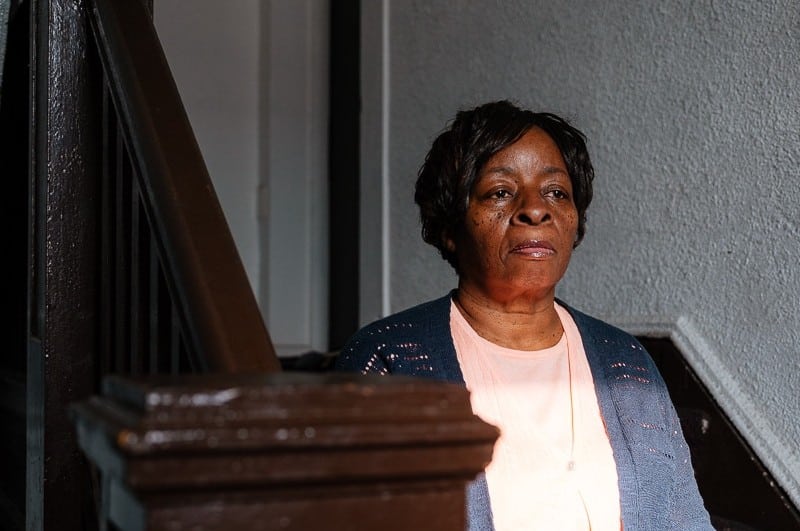Surviving Detroit’s highs and lows: Flo Boutique owner on navigating a crisis
COVID-19 isn't the first crisis Felicia Williams-Patrick has seen her business through. The Detroit boutique owner has weathered the city's ups and downs, and knows a thing or two about what it takes for a retail store to survive.
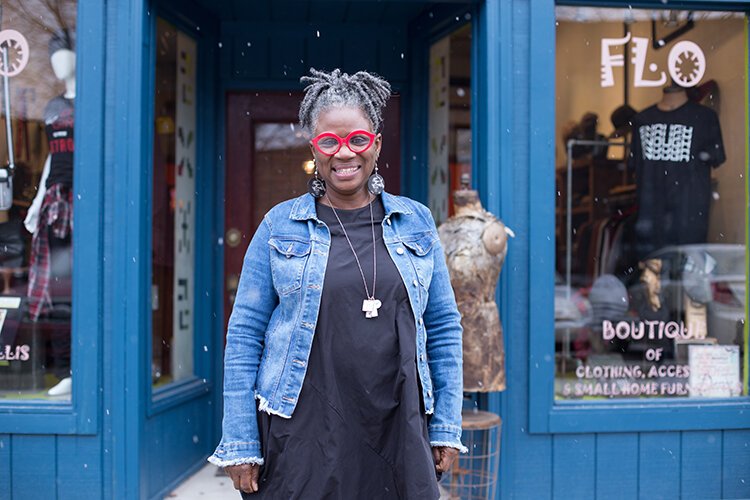
Felicia Williams-Patrick unlocks the door to her clothing store to each customer as they arrive. It’s been the only way she can ensure she has only six people in her boutique at a time. The change to her usual (literally) open-armed welcome to her stalwart Midtown shop is one of the many ways the entrepreneur has had to pivot during COVID-19.
“2020 was going to be that year,” Williams-Patrick says. “[The pandemic] took it right out from under us. Before, we were a warm, hugging environment.”
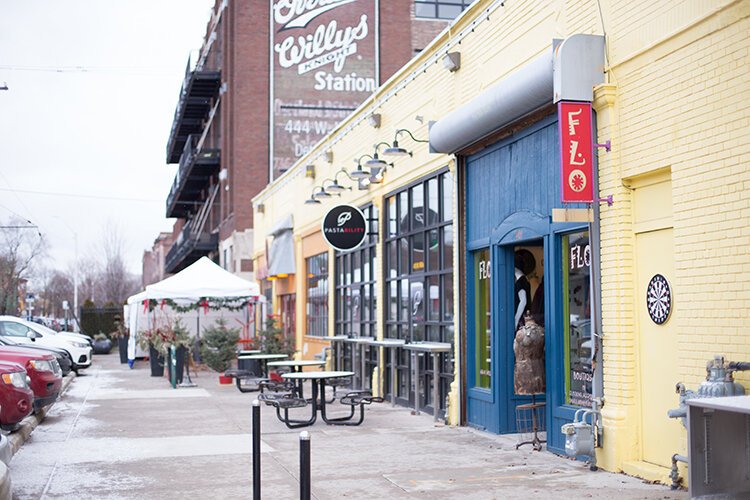
When Williams-Patrick opened Flo Boutique at 404 W. Willis more than 15 years ago, she named the store for her mother, who had lost her battle with lung cancer in 1999. Florence Williams-Britton was her “mom and best friend,” and the business helped Williams-Patrick work through some of her grief.
“It helped me stay busy,” she says.
The store specializes in hats, accessories, and what Williams-Patrick describes as “funky, eclectic” clothing, but the business woman’s passion for fashion started long before she launched a retail store.
“In the seventh grade I started making things on my sewing machine,” she says. “I still have that machine.”
Channeling a heavy ’60s and ’70s vibe, Williams-Patrick enjoys working with cotton and denim and is in the process of developing her own line, called Second Life, to sell at the boutique. Last year she released a “Just Vote” series of T-shirts, which proved popular.
“I want to create funky stuff you don’t often see,” she says. “I love creating skirts, that’s where I started, I want to get into more tops and layering pieces.”
Flo is not Williams-Patrick’s first entrepreneurial endeavor. She previously went into the retail business with a friend, but branched out on her own to focus her interest further.
“That was my baby,” she says of Flo Boutique. “I started getting into more of what I like.”
What she liked was sourcing from local designers, like S.O.A.P, Headpiece Design, Sofistafunk, and Original D. She sources hats and accessories, and delights in finding a local artist to put on display.
“Some of them don’t even have a brand name,” says Williams-Patrick. “They just have a cool T-shirt design.”
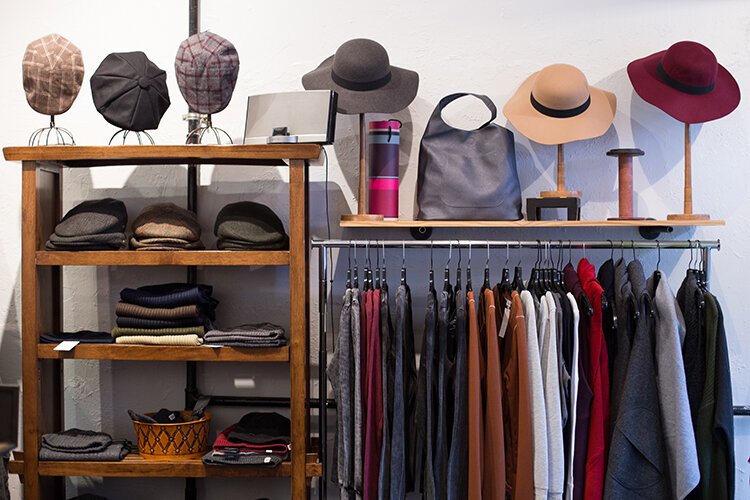
Flo Boutique started hosting “trunk shows” where designers and artists, such as Atlanta’s aakofii and Chicago’s Larry Davis from HeadPeace, would visit the city. Pop-up music and food stalls added to the street-side festive atmosphere at the shows.
“I provide room in the shop, and people really look forward to it,” she says. “We relied on those events.”
When the COVID-19 pandemic hit early last year, Williams-Patrick had to close her doors for three months, canceling the trunk shows she had planned for the year. The impact was significant. Without the revenue to help turn over merchandise, by the time she could tentatively re-open, her items were out of season and she had to resort to clearance sales to generate space and cash flow. She estimates a 50% loss in revenue during 2020.
The restrictions did, however, allow for some space for creativity. Williams-Patrick worked with local graphic artist Shawny Davis to design a logo for Flo Boutique, and says the time helped her focus on what she really wanted for the future of the business. Mostly though, her time was eaten up by filling out funding applications and trying to stay financially buoyant.
Help came in the form of grants and in supportive friends. Williams-Patrick was able to secure funding from LISC Detroit and from Midtown Detroit, which helped cover the expenses to stay open and refocus on a new marketing campaign. She feels supported by her community and loyal patrons.
“I believe if I didn’t have grant money I would have had to shut down, or do fundraising,” she says. “I have a lot of customers who said hey, what do you need? We got you.”
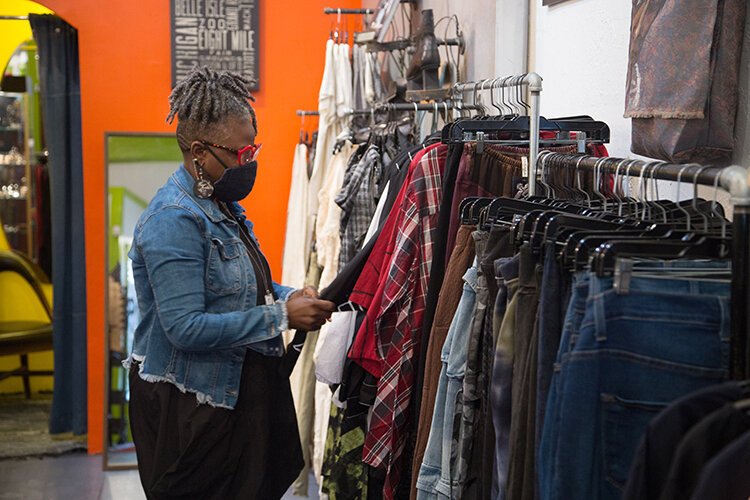
This is not the first crisis Williams-Patrick has navigated a business through. As a veteran in the Detroit retail industry, she says having a solid customer base, good location, and a niche saw her through the financial crisis in 2008 and 2009.
“We didn’t even have social media like we do now,” she says. “It was word of mouth, and being about your business.”
Now, she sees this crisis playing out differently with the online options for retails stores kicking in, but hopes the small businesses that have stayed strong receive the attention they deserve, and that experienced vendors can share some of their wisdom with new business owners in the city.
“I have more support now as a Black woman in business, I think because outside of the political part of it — people are reaching out. I have new customers who want to support business, period, and particularly women in business.”
Despite the support and experience, Williams-Patrick’s roller-coaster ride continues. This year she started an online store, only to shut it down again after struggling to keep up with it. After another false start with the web sales, she says she realized her perfectionism was a problem and that she needs to “get out of her own way.”
“There’s always going to be someone who doesn’t like it, I just have to do it and be OK with it.”
It will take some bravery, but Williams-Patrick says she’s ready.
“My mentor said ‘just open it up with three things,’ just do it and let it grow.”
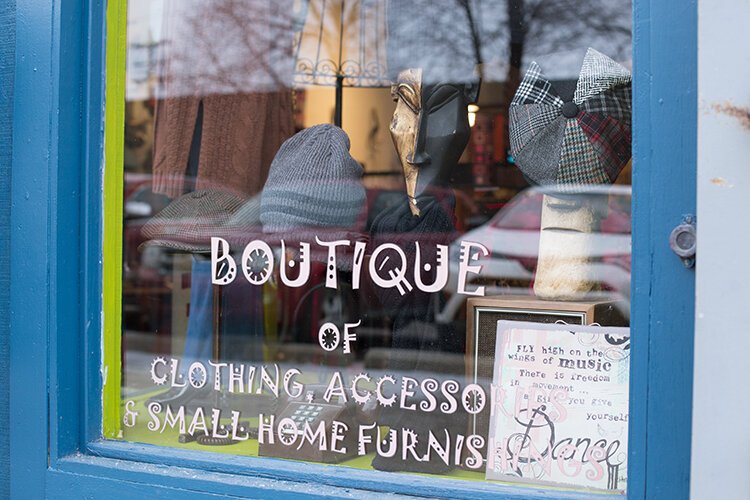
This is part of a series supported by LISC Detroit that chronicles Detroit small businesses’ journey in response to the COVID-19 pandemic.


